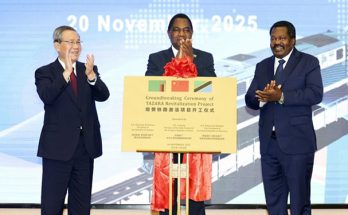 NAIROBI, July 5 (Xinhua) — African leaders should focus on developing intra-regional and continental tourism, said a UN report released on Wednesday.
NAIROBI, July 5 (Xinhua) — African leaders should focus on developing intra-regional and continental tourism, said a UN report released on Wednesday.
According to the Economic Development in Africa Report 2017, intra-regional tourism in Africa is increasing and offers opportunities for economic and export diversification, if its potential is recognized at the regional and national levels.
“As the negotiations for the creation of a continental free trade area progresses, governments should ensure that specific attention is devoted to tourism, as it accounts for the major share of Africa’s trade in services exports,” said the report by the UN Conference on Trade and Development (UNCTAD).
The report argues that tourism can complement development strategies aimed at fostering economic diversification and structural transformation within the right policy context.
The United Nations has designated 2017 as the International Year of Sustainable Tourism for Development.
The report said four out of every ten international tourists in Africa come from the continent itself. In sub-Saharan Africa, this number increases to two out of every three tourists.
The UN says tourism in Africa is a flourishing industry supporting more than 21 million jobs, or 1 in 14 jobs on the continent.
Over the last two decades, Africa has recorded robust growth with international tourist arrivals growing at 6 percent per annum and tourism revenues growing at 9 percent per annum between 1995 and 2014.
This year’s report encouraged African countries to harness the dynamism of the tourism sector.
The findings show that African countries would benefit if they made further progress on the free movement of persons and the liberalization of air transport services.
“This would facilitate greater access to tourism destinations and boost their destinations’ competitiveness,” said the report.
According to the UN report, if tourism is to help increase Africa’s share of the global trade in goods and services, it will require the development of regional integrated tourism policies to be implemented in a concerted manner across regional economic communities.



